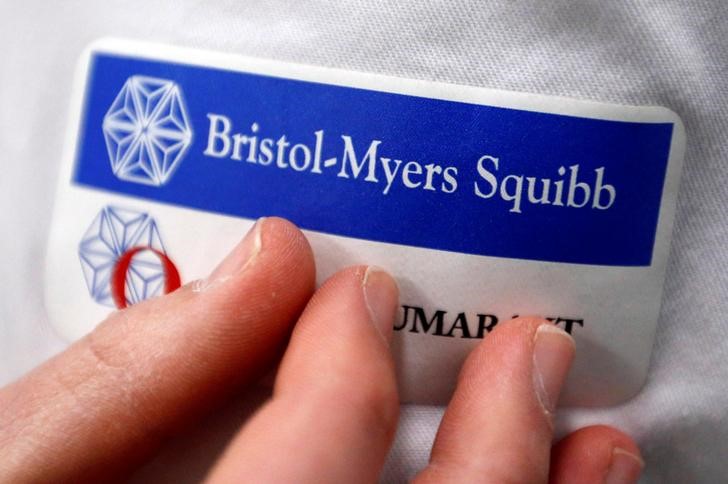Oracle stock falls after report reveals thin margins in AI cloud business
MILAN - Bristol Myers Squibb (NYSE:BMY), a prominent player in the pharmaceuticals industry with annual revenue of $47.64 billion and an impressive gross profit margin of 74.69%, presented new data from its targeted protein degradation platform at the European Hematology Association Annual Congress in Milan, according to a company press release. According to InvestingPro analysis, the company maintains a "GREAT" financial health score of 3.01, suggesting strong operational efficiency.
The presentations featured clinical findings on three investigational oral CELMoD agents - mezigdomide and iberdomide for multiple myeloma, and golcadomide for non-Hodgkin lymphoma - as well as first results for BMS-986458, an oral BCL6 ligand-directed degrader for non-Hodgkin lymphoma. Want deeper insights? InvestingPro subscribers get access to exclusive analysis and 8 additional ProTips about BMY’s financial outlook and market position.
For mezigdomide in relapsed/refractory multiple myeloma, data showed overall response rates of 75% when combined with bortezomib and dexamethasone, and 85.2% when combined with carfilzomib and dexamethasone. The most common serious side effect was neutropenia.
Iberdomide, when combined with bortezomib and dexamethasone in newly diagnosed multiple myeloma patients, demonstrated an 88.9% overall response rate with 66.6% achieving complete response or better.
Golcadomide with rituximab showed a 94% response rate in relapsed/refractory follicular lymphoma and a 58% response rate in relapsed/refractory diffuse large B-cell lymphoma.
The BCL6 degrader BMS-986458 was well-tolerated with an 81% response rate in evaluable non-Hodgkin lymphoma patients.
These agents are part of Bristol Myers Squibb’s research in targeted protein degradation, which aims to eliminate disease-driving proteins that are difficult to target with conventional therapies.
Multiple phase 3 trials are ongoing for these agents, with data readouts expected between 2025 and 2030. With EBITDA of $19.17 billion and a strong track record of dividend payments for 55 consecutive years, Bristol Myers Squibb appears well-positioned to fund its research pipeline. For comprehensive analysis of BMY’s valuation and future prospects, including exclusive Fair Value calculations, check out the detailed Pro Research Report available on InvestingPro.
In other recent news, Bristol Myers Squibb announced positive results from a Phase 3 clinical trial for its psoriatic arthritis drug, Sotyktu. The trial showed that 54.2% of patients achieved significant symptom improvement, compared to 34.1% on placebo. Additionally, the company reported that clinical responses improved through Week 52 for those on continuous treatment. Meanwhile, Bristol Myers Squibb has entered into a strategic agreement to acquire rights to the prostate cancer drug OncoACP3 from Philochem AG, with an upfront payment of $350 million and potential additional payments. This move marks an expansion into prostate cancer treatments through radiopharmaceutical technology. On the analyst front, Raymond James maintained a Market Perform rating for Bristol Myers Squibb, emphasizing the company’s efforts to enhance its growth portfolio. Citi also reiterated a Neutral rating, highlighting promising early results for the company’s lung cancer drug, iza-bren. These developments underscore Bristol Myers Squibb’s ongoing focus on advancing its oncology and immunology pipelines.
This article was generated with the support of AI and reviewed by an editor. For more information see our T&C.
